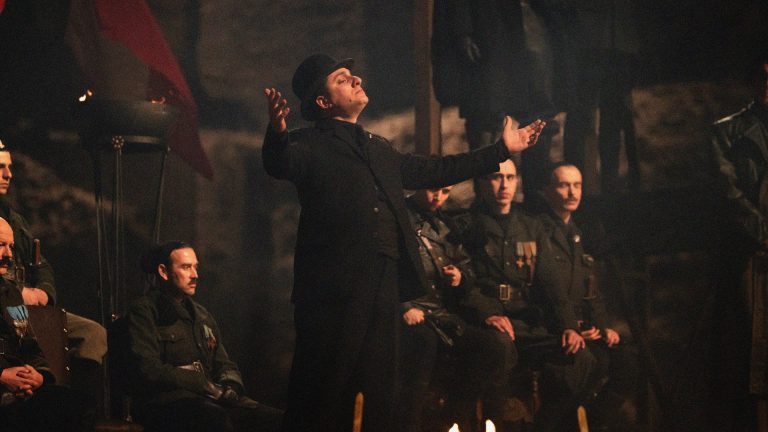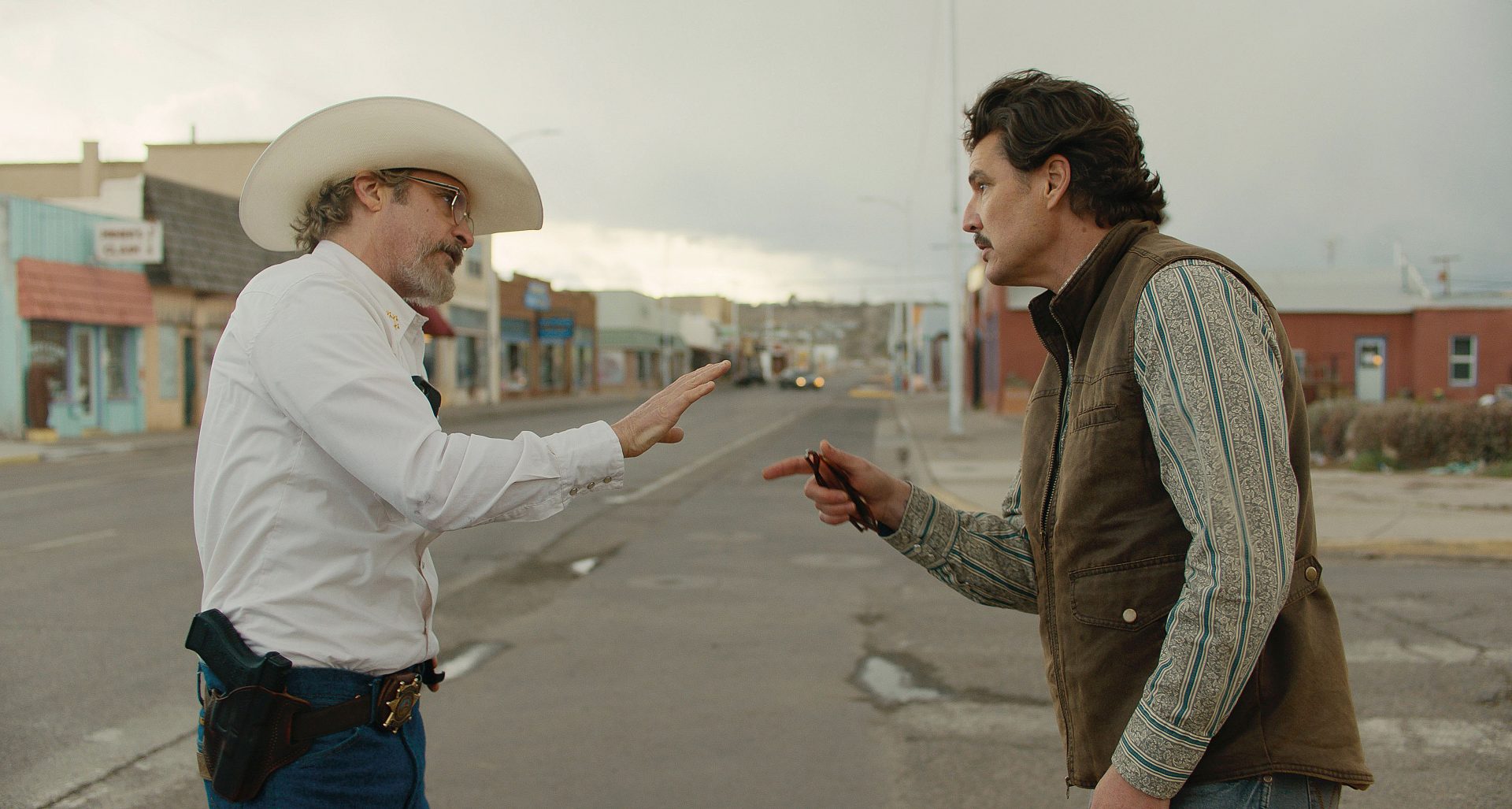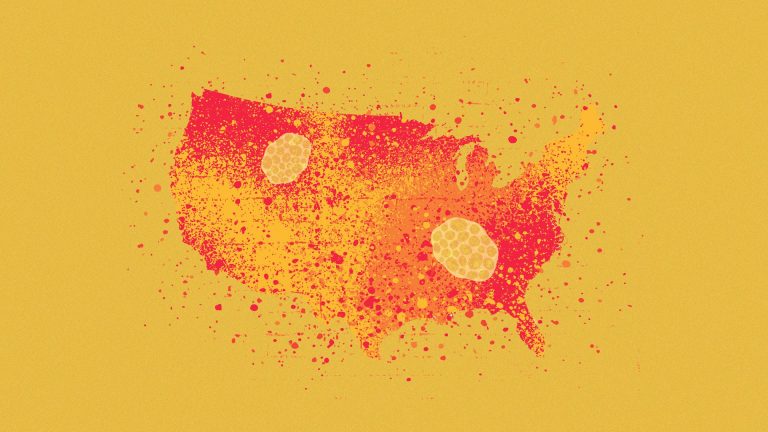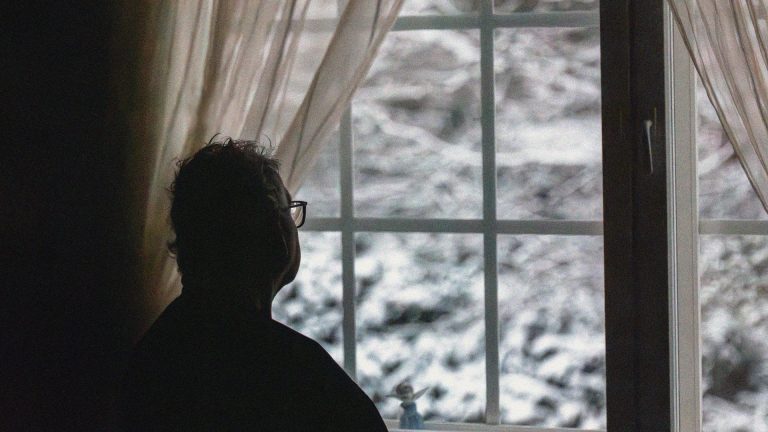The Covid-19 pandemic kept us apart and then brought us together. Then, after brief moments of solidarity with others and of celebration when the vaccine emerged, came the side effects. It divided us as communities, created mental health crises, educational shortcomings and uncertainty, increased alienation and fostered an environment where conspiracy theories grew like pustules.
Towards the bottom of the list in seriousness but nonetheless significant has been the poor cinematic creations it spawned. Filmmakers made insipid diary-like responses – Luca Guadagnino (Fiori, Fiori, Fiori!) and Alice Rohrwacher (Four Roads) both contributed to this woebegotten genre. One of the better ones was Chinese filmmaker Lou Ye’s An Unfinished Film, which showed in Cannes last year, a hybrid documentary lumbered with an unprepossessing title.
Meanwhile, studios delayed the release of films, and shot films with visible social distancing protocols in place. The content was not great and the industry suffered as theatres shuttered and viewing habits skewed towards streaming even more than they had previously.
An honorable mention must go to Rob Savage’s Host, a horror film about a seance, filmed in the midst of the pandemic and taking place on a Zoom call. Inspired by a prank that went viral, it was a great example of an improvised solution to terrible conditions. But arguably, the best response had already come years before the virus arrived, with Steven Soderbergh’s 2011 disaster movie Contagion.
Cannes itself was cancelled by Covid in 2020 and had the next year’s edition moved from its regular slot by two months. The festivals which took place in the shadow of the virus featured strict protocols of daily spit tests – the Lord knows the environmental costs of disposing of all that cinephile saliva – and there were distancing measures, temperature checks and masks to be worn everywhere.
More from this author

Mussolini, Trump and me
Unlike in the US, such measures were relatively uncontroversial. I visited Bergamo a few months after it had become one of the first hot spots in Europe with eye-watering mortality rates. God help you if you didn’t wear your mask there. The devastated community policed itself strictly and with little wiggle room.
Now we’re past the pandemic and no longer constrained by its fears or protocols, we can look back on it as a period of recent history. Ari Aster’s Eddington, which premiered at Cannes this week, is the first major Hollywood film to be set during the pandemic and to use it as a motivating theme and backdrop.
The film is set in a New Mexico town in May 2020. The lockdown has only just begun and for many places such as this county, the pandemic is something that still feels remote. Joaquin Phoenix plays a local sheriff, Joe Cross, who is rubbed up the wrong way by the new protocols which he is supposed to be enforcing, but with which he refuses to comply, partly due to his asthma, partly out of boneheaded stubbornness. At home, Joe’s wife Louise (Emma Stone) is recovering from a mental health problem and this situation is worsened by the enforced stay of his mother-in-law, Dawn (Deidre O’Connell), who divides her time berating them and rabbit-holing into conspiracy theories.
Things deteriorate further when Sheriff Joe – the name has to be a sly reference to anti-immigrant Arizona Sheriff Joe Arpaio whose infamy was a brief fart on the winds of history – decides to join the mayoral race to unseat Mayor Ted Chavez, a local bar owner, played by Pedro Pascal, who once dated Louise.
So with major Hollywood star power, a talented and visionary director (Aster has directed the excellent horror films Hereditary and Midsommar), could this be the first film to really nail the experience of the Covid period? Unfortunately, the answer has to be a resounding no.
In his last film Beau Is Afraid, Aster depicted anxiety by making a panic attack of a movie. So here, in his new film and in order to depict cynicism, divided society and a post-truth world, he makes a deeply cynical, divisive and fact-phobic film.
Everything is rotten in the town of Eddington, even people who want to change the system. Reformers like Mayor Chavez are hypocrites with their own financial agendas. White Black Lives Matter protestors are ridiculed for their narcissism and guilt. Aster might claim to be even-handed but his targets – white liberals alongside bigots and nutso conspiracy theorists are not so much low-hanging fruit as windfall.
The story is chock-a-block with plot, and references everything from Amazon delivery vans to Mary-Taylor Greene, gun enthusiasts to TikTok, Pizzagate to 9/11. Someone even mentions the fact that the Titanic didn’t really sink. Wow. This goes deep. I saw this video on YouTube.
Austin Butler wanders into the film as a guru, dressed like Jared Leto at his most messianic, using numerology to unmask pedophile plots, and wanders out of it again. Meanwhile, as protests become riots, Joe becomes increasingly unhinged in his mayoral campaign, using his office and vehicle to campaign.
Conflicts soon escalate into murder and gun battles that resemble Call of Duty, or a season finale of the Fargo TV series. This is the America of MAGA, though Trump isn’t mentioned. The madness is so self-evidently linked to him, it hardly seems necessary.
One can certainly feel the paranoia, confusion and boredom-inspired madness of lockdown, but Covid itself hasn’t really arrived and so the anti-maskers and anti-vaxxers – such as Joe – are initially more credible. And this perhaps gets to the heart of how difficult it is to make a film about Covid. That spiky Corona is microscopic so what’s to see? And masks look stupid. They’re fiddly and obscure the landscape that most entranced John Ford: the human face.
Conspiracies are more compelling from a plot point of view than scientific, fact-based explanations. They are, after all, plots. Plus a maverick individual, like Sheriff Joe, occupies a sacred role in the American mythos. He’s Gary Cooper in High Noon, Shane in Shane, standing for the rights of the individual even if it means standing against progress and pesky social distancing.
Even as he descends into something like psychosis and Covid itself asserts its invisible grip, as an audience we follow him and might even cheer him as it morphs into a latter-day Rambo figure.
American cinema celebrates rogue individuals even as it might ostensibly condemn them: think of Travis Bickle in Taxi Driver, or Harry Callaghan in Dirty Harry. In fact, that latter character could well sum up the misanthropy that runs through Ari Aster’s film: “That’s one thing about our Harry. He doesn’t play any favourites! Harry hates everybody.” That’s the thing about our Ari too. He hates everybody: liberals, conservatives, antifa…











